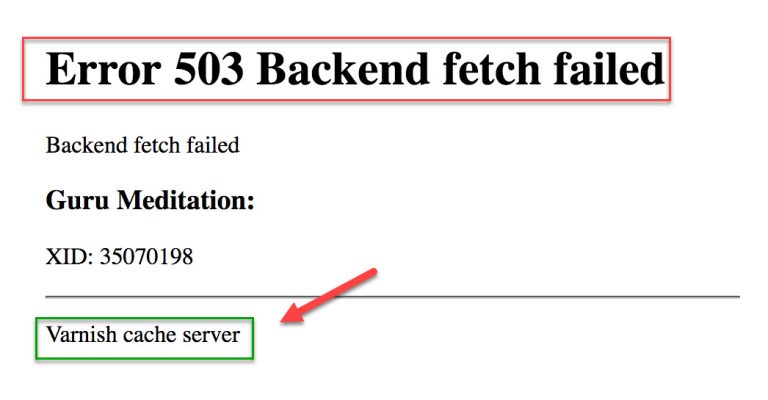How Structured Data Can Improve Website Crawlability
Structured data, also known as schema markup, can significantly enhance a website’s crawlability and indexability by providing search engines with more context about the content on your pages.
Schema markup is a form of microdata that provides a specific vocabulary for structured data. It helps search engines understand the context and relationships of different elements on a webpage.
By implementing schema markup, you can enhance the way your content is displayed in search results, leading to better visibility and higher click-through rates.
To take advantage of these benefits, you should implement relevant schema markup on your website, such as for products, reviews, events, articles, and more. Tools like Google’s Structured Data Testing Tool can help you validate your structured data implementation and identify any issues.
Here’s how structured data can improve crawlability:
Improved Content Understanding
Structured data allows you to explicitly define the meaning and relationships between different elements on your web pages. This helps search engines better understand the content, making it easier for them to crawl and index your pages accurately.
Enhanced Visibility in Search Results
When search engines can better comprehend your content through structured data, they are more likely to display rich snippets, knowledge panels, and other enhanced search results for your pages. This increased visibility can drive more traffic to your site.
Faster Crawling and Indexing
Structured data provides search engines with a clear roadmap of your website’s content hierarchy and relationships. This allows them to crawl and index your pages more efficiently, ensuring your latest updates are reflected in search results more quickly.
Increased Trust and Authority
Properly implemented structured data signals to search engines that your website contains high-quality, authoritative content. This can lead to improved rankings and increased trust from users who see your enhanced listings in the SERPs.
Definition of Structured Data
Structured data refers to any data that is organized in a predefined manner, making it easily searchable by search engines. This type of data is often used to create rich snippets in search results, which can significantly enhance the visibility of a website.
By providing a clear and organized structure to the data, search engines can better understand the content of a webpage, leading to improved indexing and ranking.
Types of Structured Data
There are several types of structured data, each serving different purposes and industries. The most commonly used types include:
- JSON-LD (JavaScript Object Notation for Linked Data): This is a lightweight format for structuring data that can be embedded directly into the HTML code of a webpage.
- Microdata: This type of structured data is embedded within the HTML content using specific tags and attributes.
- RDFa (Resource Description Framework in Attributes): RDFa adds metadata to the HTML code, enhancing the meaning and relationship of the data on the page.
How Search Engines Use Structured Data
Search engines like Google, Bing, and Yahoo use structured data to better understand the content of a webpage. When structured data is correctly implemented, it can help search engines:
- Identify the main topics of a page.
- Extract key information to display as rich snippets.
- Enhance the user experience by providing more relevant search results.
How Structured Data Works
Implementation Techniques
Implementing structured data on your website involves adding specific markup to your HTML code. This can be done manually or using tools and plugins that simplify the process. It’s important to choose the right type of structured data and format that best suits your content and industry.
Commonly Used Formats (JSON-LD, Microdata, RDFa)
Each format of structured data has its own benefits and use cases. JSON-LD is often preferred for its simplicity and flexibility, while Microdata and RDFa are more integrated into the HTML content itself. Understanding the differences and applications of each format can help in selecting the most appropriate one for your needs.
Benefits of Structured Data for SEO
Enhanced Search Engine Understanding
Structured data helps search engines comprehend the context and structure of your content, leading to more accurate indexing. This improved understanding can result in higher rankings and better visibility in search results.
Improved Rich Snippets
Rich snippets are enhanced search results that include additional information such as reviews, ratings, and images. By using structured data, you can create rich snippets that stand out in search results, attracting more clicks and driving more traffic to your site.
Increased Click-Through Rates (CTR)
The enhanced visibility and appealing presentation of rich snippets can significantly boost your click-through rates. When users see detailed and relevant information directly in the search results, they are more likely to click on your link.
Voice Search Optimization
With the rise of voice search, structured data has become even more important. Voice search queries often seek specific answers, and structured data can help search engines provide accurate and relevant responses. This can improve your website’s chances of being featured in voice search results.
Structured Data and Website Crawlability
Simplifying Search Engine Crawling
Structured data makes it easier for search engines to crawl and index your website. By providing a clear structure and context to your content, search engines can efficiently navigate through your pages, ensuring that all relevant information is indexed.
Avoiding Duplicate Content Issues
Duplicate content can be a significant issue for website owners, as it can lead to lower rankings and penalties from search engines. Structured data helps in identifying and differentiating similar content, reducing the chances of duplicate content issues.
Enhancing Content Discovery
When search engines can easily understand and index your content, it improves the overall discoverability of your website. This means that your content is more likely to be found by users searching for relevant topics, leading to increased traffic and engagement.
Best Practices for Implementing Structured Data
Selecting the Right Schema Markup
Choosing the correct schema markup for your content is crucial. There are hundreds of schema types available, each catering to different content types and industries. Selecting the most appropriate schema can enhance the relevance and accuracy of your structured data.
Ensuring Data Accuracy
Accurate data is essential for effective structured data implementation. Ensure that all the information provided in your structured data is correct and up-to-date. Inaccurate data can mislead search engines and users, leading to lower rankings and decreased trust.
Regular Testing and Validation
Regularly testing and validating your structured data is important to ensure its effectiveness. Use tools like Google’s Structured Data Testing Tool to check for errors and validate your markup. Regular testing helps in maintaining the accuracy and relevance of your structured data.
Tools for Implementing Structured Data
Google’s Structured Data Markup Helper
Google’s Structured Data Markup Helper is a free tool that helps you generate structured data for your website. It provides an easy-to-use interface where you can select the type of data you want to mark up and add it to your HTML code.
Schema.org Generator
Schema.org offers a wide range of tools and resources for generating structured data. The Schema.org generator allows you to create different types of schema markups, ensuring that your content is accurately represented in search results.
Yoast SEO Plugin
For WordPress users, the Yoast SEO plugin is an excellent tool for implementing structured data. It provides easy-to-use options for adding structured data to your posts and pages, helping you improve your website’s SEO and visibility.
Case Studies: Success Stories with Structured Data
E-commerce Sites
E-commerce websites can greatly benefit from structured data. By implementing product schema, these sites can display detailed information such as prices, availability, and reviews directly in search results. This enhances the user experience and increases click-through rates.
News Websites
News websites can use structured data to highlight key information such as publication date, author, and article type. This helps search engines accurately index and display news articles, improving their visibility and reach.
Local Businesses
Local businesses can use structured data to enhance their local SEO. By providing detailed information about their location, hours of operation, and services, they can improve their chances of appearing in local search results and attracting more customers.
Challenges in Using Structured Data
Common Implementation Errors
Implementing structured data can be challenging, and errors are common. These can include incorrect syntax, missing required fields, and using outdated schema types. It’s important to regularly check for and correct these errors to ensure effective structured data implementation.
Handling Dynamic Content
Dynamic content, such as user-generated content and frequently updated information, can be difficult to manage with structured data. Ensuring that structured data remains accurate and up-to-date for dynamic content requires continuous monitoring and updates.
Keeping Up with Updates
The world of structured data is constantly evolving, with new schema types and best practices emerging regularly. Staying up-to-date with these changes is essential for maintaining effective structured data implementation.
FAQs
What is structured data? Structured data refers to a standardized format for providing information about a page and classifying the page content. It helps search engines understand the content and context of a webpage, leading to better indexing and visibility in search results.
How does structured data improve website crawlability? Structured data makes it easier for search engines to crawl and index your website by providing clear and organized information about the content. This helps search engines understand and navigate your pages more efficiently.
What are rich snippets and how do they benefit my website? Rich snippets are enhanced search results that display additional information such as ratings, reviews, and images. They improve the visibility and attractiveness of your search results, leading to higher click-through rates and more traffic to your website.
Which format of structured data should I use? The choice of format depends on your specific needs and the type of content you have. JSON-LD is commonly used for its simplicity, while Microdata and RDFa are more integrated into the HTML content. It’s important to choose the format that best suits your content and industry.
How can I implement structured data on my website? You can implement structured data manually by adding specific markup to your HTML code, or you can use tools and plugins like Google’s Structured Data Markup Helper and the Yoast SEO plugin to simplify the process.
What are the common challenges in using structured data? Common challenges include implementation errors, managing dynamic content, and keeping up with updates in schema types and best practices. Regular testing and validation are essential for maintaining effective structured data implementation.





